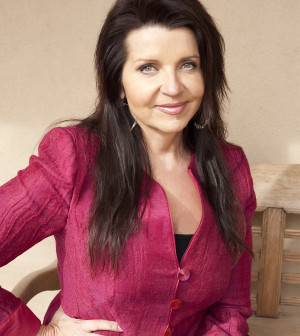- Finding Unshakable Power in a World That Wants to Pull Us ApartPosted 6 months ago
- What could a Donald Trump presidency mean for abortion rights?Posted 6 months ago
- Financial Empowerment: The Game-Changer for Women in Relationships and BeyondPosted 7 months ago
- Mental Health and Wellbeing Tips During and After PregnancyPosted 7 months ago
- Fall Renewal: Step outside your Comfort Zone & Experience Vibrant ChangePosted 7 months ago
- Women Entrepreneurs Need Support SystemsPosted 7 months ago
Top 3 Signs Your Boundaries Interfere With Weight Loss

By Colette Baron-Reid
You may have heard me talk about the connection between empathy and weight gain. We all think it makes perfect sense that when we are stressed or bored or celebratory, we turn to food for comfort and rewards. We have come to know this phenomenon as “emotional eating.” But if it is that cut and dry, why are we still struggling with our weight even when we have learned to put the cookies down and go for a walk instead? We know how to do the calculation: calories out should exceed calories in = weight loss. But what if you are doing the math correctly and you still gain weight? It’s more than emotional eating; it’s taking on the weight of the world – literally and figuratively. Let me explain. If you are one of the many (and I stress the word “many”) who feel too much and it’s directly affecting your waistline, you will likely agree with the following statements.
- You have little or no control over your weight. Your weight can fluctuate without changing what you eat and dieting does not work – regardless of the latest and greatest diet strategy being pushed by your favorite celebrity.
- You feel too much. Is it hard for you to be around people because the feelings you are experiencing are not always your own, because they are emotions you picked up from people around you? Think of how it feels to be in a big crowd with a plethora of emotions coming at you all at once. Are you exhausted after being in a room with a bunch of drama queens or frustrated co-workers?
- You have a distorted relationship with food and your body. You are not consistent with healthy eating patterns or weight loss and gain – there is little consistency even when there are long bouts of healthful behaviour.
“If you are physically agitated by what you see and hear, you have porous boundaries and empathy overload.”
Although it may feel frustrating to answer “yes” to all three of these statements, the great news is (1) you are not alone and (2) many people have been right where you are (including myself) and have made great strides to a healthier lifestyle, both physically and emotionally. So what’s the secret? It starts with recognizing that boundaries play an important role in your life. I’m not just referring to boundaries with portion control on your plate; I’m referring to emotional boundaries that are blurred when you find yourself taking on issues and challenges of people around you, voluntarily and involuntarily. This is what I refer to as porous boundaries – you are enmeshed with the emotions of other people and it’s difficult to not be affected by conflict around you, whether it is in person, in a competition, or on a “reality” show on television. If you are physically agitated by what you see and hear, you have porous boundaries and empathy overload. The first step in making progress is to notices what’s happening. The second step is to affirm in yourself that you are NOT their issues and it’s not your job to fix it. How great would it feel to be able to look at the people engaged in the conflict and say (to yourself only) ” good luck with that” and mean it? No, I am not being sarcastic or passive-aggressive when I suggest this. Honestly, wish them luck and move on. It’s not callous or uncaring; it’s you separating from them for your own self-care. For one week, notice the emotions that are going on around you. There may be stress, agitation, overwhelm and frustration, but is it yours? Does it belong to you or are you feeling it around you? Give this some serious focus and each time it comes up repeat this phrase to yourself: “Good luck with that.” It may also help you to journal about what you observe during that week. Reread it at the end of the week and see what patterns show up and how you became increasingly proficient in detaching yourself from the emotions of others.
Colette Baron-Reid is an intuitive counsellor and founder of the Master Intuitive Coach Institute. Her book, “Weight Loss For People Who Feel Too Much” is available on Amazon and in book stores everywhere!






